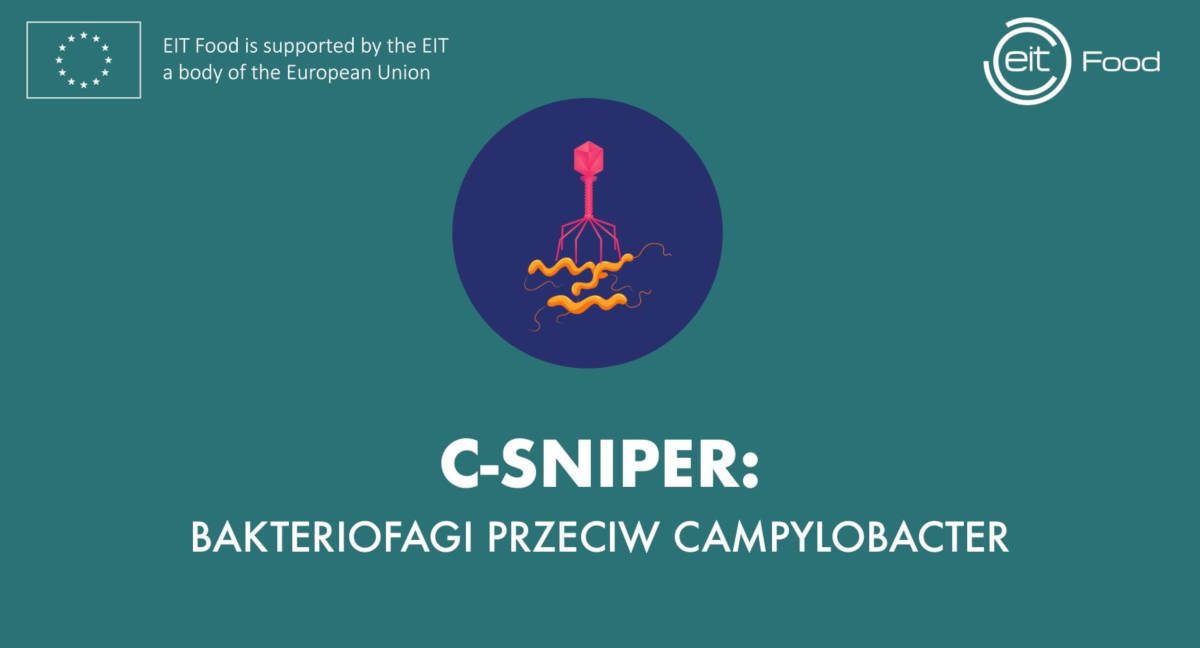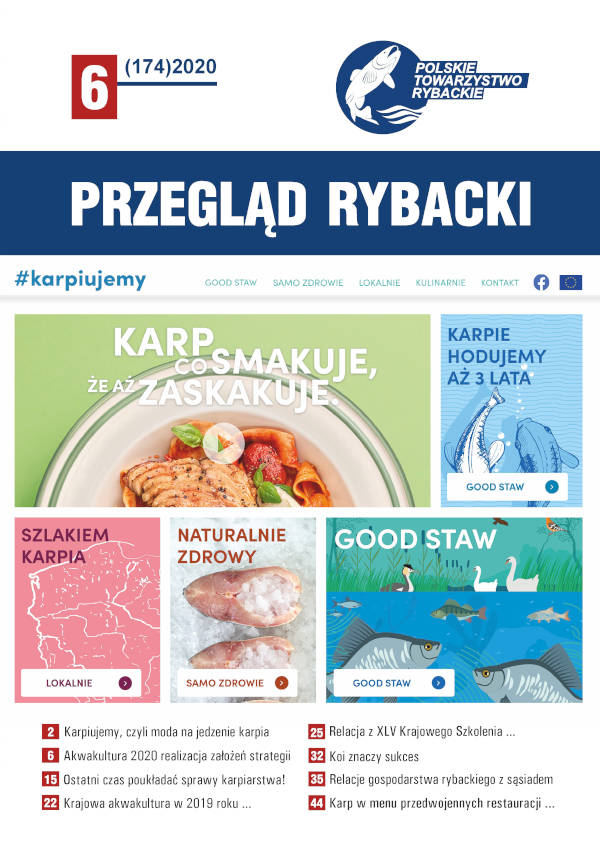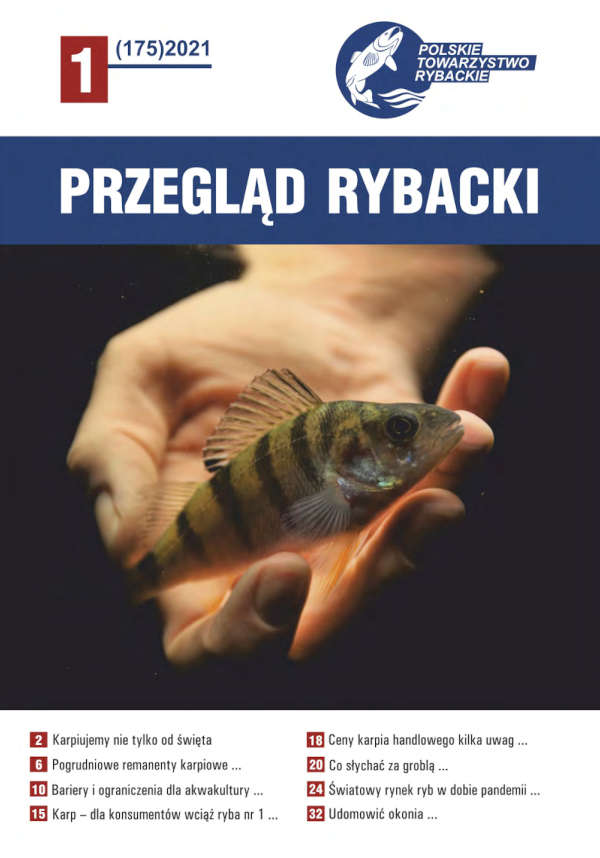PL
Projekt „Inkubator Innowacyjności 4.0”
Od października 2020r. Instytutu realizuje projekt w ramach programu „Inkubator Innowacyjności 4.0”, który został ustanowiony przez MNISW i finansowany jest ze środków europejskich w ramach projektu „Wsparcie zarządzania badaniami naukowymi i komercjalizacja wyników prac B+R w jednostkach naukowych i przedsiębiorstwach” w ramach Programu Operacyjnego Inteligentny Rozwój 2014-2020 (Działanie 4.4).
Projekt jest realizowany w konsorcjum pod przewodnictwem Instytutu Biotechnologii Przemysłu Rolno-Spożywczego im. prof. W. Dąbrowskiego PIB ze Szkołą Główną Handlową w Warszawie i z naszym Instytutem na podstawie umowy nr MNISW/2020/318/DIR.
Celem projektu jest wsparcie zarządzania wynikami badań naukowych i prac rozwojowych, głównie w zakresie komercjalizacji. Realizacja projektu przyczyni się do promocji osiągnięć naukowych, zwiększenia ich wpływu na rozwój innowacyjności oraz wzmocnienia współpracy między środowiskiem naukowym a otoczeniem gospodarczym.
W ramach projektu wspierane będą następujące działania:
- prowadzenie prac przedwdrożeniowych, w tym testów laboratoryjnych lub dostosowania wynalazku do potrzeb zainteresowanego nabywcy;
- przygotowanie projektów komercjalizacji wyników badań naukowych i prac rozwojowych zawierających w szczególności analizy potencjału rynkowego wynalazków oraz analizy ich gotowości wdrożeniowej, a także wyceny praw własności przemysłowej;
- inicjowanie oraz wzmacnianie współpracy między środowiskiem naukowym a otoczeniem gospodarczym, w tym poszukiwanie podmiotów zainteresowanych
- wdrożeniem wyników badań naukowych i prac rozwojowych, przez promocję oferty technologicznej oraz udział w wystawach i targach typu „science to business”;
- zarządzanie portfelem technologii;
- działalność Brokerów Innowacji odpowiedzialnych za nawiązanie współpracy między środowiskiem naukowym a otoczeniem gospodarczym, co będzie skutkowało zastosowaniem wyników badań naukowych i prac rozwojowych w ramach konkretnych rozwiązań rynkowych.
Projekt nadzoruje Biuro Wspierania Badań i będzie trwał do grudnia 2022 roku.



Dokumenty do pobrania
V Sympozjum: Perspektywy w ochronie bioróżnorodności
Zapraszamy do uczestnictwa w kolejnej, piątej edycji Sympozjum „Perspektywy w ochronie bioróżnorodności”.
Sympozjum odbędzie się w dniach 26-27 maja 2021 r. ON-LINE (platforma ZOOM).
Przewidujemy wykłady zaproszonych naukowców z Europy oraz wystąpienia wybrane spośród nadesłanych streszczeń. Wśród zaproszonych prelegentów będzie Prof. Elena Buzan, Prof. Georgi Markov oraz dr hab. Małgorzata Kotula-Balak, prof. nadzw.
Prosimy o przesyłanie streszczeń poprzez Formularz zgłoszeniowy.
Uczestnictwo w Sympozjum jest bezpłatne.
W imieniu Organizatorów,
Prof. dr hab. Anna Korzekwa
Seminaria
System seminariów instytutowych
| TYP SEMINARIUM | CZĘSTOTLIWOŚĆ | TERMIN/Y | PRELEGENT | ORGANIZATOR |
|---|---|---|---|---|
| SEMINARIUM DYREKTORA | raz w roku | początek stycznia | DYREKTOR | – |
| OL-PAN | raz na dwa miesiące | wybrany piątek miesiąca, 9:00 | GOŚĆ spoza Instytutu | dr hab. Joanna Wiśniewska dr Joanna Fotschki dr Sylwia Machcińska-Zielińska dr Marta Kopcewicz mgr inż. Magda Słyszewska |
| NAUKOWE/LIDERÓW | 2-3 razy w miesiącu | piątek, 9:00 | LIDER tematu badawczego |
dr K. Kurzątkowska-Adaszyńska
dr A. Ogrodowczyk
dr A. Mostek-Majewska
dr A. Szczepkowska
|
| DOKTORANCKIE | 2-3 razy w roku | trzeci piątek IX (ewentualnie czw. i pt.) |
DOKTORANCI |
dr hab. Mariola Dietrich |
| PLANY GRANTOWE | trzy razy w roku | początek V, początek VII, początek XI |
APLIKUJĄCY | |
| CORE FACILITY | raz na kwartał | piątek, 9:00 | KIEROWNICY „core facilities” | dr hab. M. Weidner-Glunde |
| SZKOLENIOWE | wg potrzeby | wg potrzeby | mgr M. Cieślik |
Harmonogram seminariów
27 czerwca, 2025, pt., 9:00 – seminarium naukowe/liderów
Dr Sylwia Judycka
Tytuł prezentacji: CRYO-LARVA: a multi-species exploration of molecular, developmental and transgenerational consequences of sperm cryo-selection in fish larvae
5 września, 2025, pt., 9:00 – seminarium OL-PAN
Prof. Marta Wrzosek
Tytuł prezentacji: zostanie podany w późniejszym terminie
30 września, 2025, wt., 10:00 – guest seminar
Dr n.wet. Alexei Santiani & dr Shirley Santiani Vargas
Tytuł prezentacji: zostanie podany w późniejszym terminie
Luty
14 lutego, 2025, pt., 9:00
Dr hab. Iwona Grabowska, prof. instytutu
Tytuł prezentacji: Spersonalizowana diagnostyka śródbłonka naczyniowego w terapii onkologicznej; w kierunku nowoczesnej waskulo-onkologii
21 lutego, 2025, pt., 9:00 – seminarium doktoranckie
Indywidualne Plany Badawcze doktorantów II roku
28 lutego, 2025, pt., 9:00
Dr hab. Bartosz Fotschki
Tytuł prezentacji: Zwiększenie wykorzystania właściwości prozdrowotnych malin w profilaktyce oraz łagodzeniu zaburzeń metabolicznych indukowanych dietą
Marzec
07 marca, 2025, pt., 9:00 – seminarium doktoranckie
Indywidualne Plany Badawcze doktorantów II roku
11 marca, 2025, wt., 9:00
seminaria sprawozdawcze z realizacji projektów FBW finansowanych w 2024 r. (cz.1)
14 marca, 2025, pt., 9:00
seminaria sprawozdawcze z realizacji projektów FBW finansowanych w 2024 r. (cz.2)
28 marca, 2025, pt., 9:00 – seminarium naukowe/liderów
Dr Maria Guzewska
Tytuł prezentacji: A Decade of Tiny Messengers: Deciphering the Role of Extracellular Vesicles in Early Pregnancy
Kwiecień
11 kwietnia, 2025, pt., 9:00 – seminarium naukowe/liderów
Prof. Dr Carsten Carlberg
Tytuł prezentacji: From Vitamin D to Healthy Aging
25 kwietnia, 2025, pt., 9:00
prof. dr hab. Monika Kaczmarek – Dyrektor Instytutu
Tytuł prezentacji: Aplikowanie o granty w NCN – perspektywa byłej członkini Rady NCN
29 kwietnia, 2025, wt., 10:30
Dr Masaya Morita – Associate Professor at the Tropical Biosphere Research Center of the University of the Ryukyus
Tytuł prezentacji: Reproduction and evolutionary history of the corals
Maj
6 maja, 2025, wt., 10:00 – guest seminar
Dr. Burim N. Ametaj, Full Professor – Department of Agricultural, Food and Nutritional Science, University of Alberta, Canada
Tytuł prezentacji: The Calci-Inflammatory Axis: A Paradigm Shift in Understanding Milk Fever
09 maja, 2025, pt., 10:00 – open seminar
Prof. Dr Dieter Steinhilber
Tytuł prezentacji: Inflammation and Lipid Mediators: Old and New Therapeutic Strategies
23 maja, 2025, pt., 9:00 – guest seminar
Dr. Chihiro Ebihara – Division of Endocrinology and Metabolism, Department of Internal Medicine, Jichi Medical University School of Medicine, Shimotsuke, Japan
Tytuł prezentacji: My Translational Research in Lipodystrophy and Obesity
30 maja, 2025, pt., 9:00 – seminarium naukowe/liderów
Dr hab. Daniel Żarski
Tytuł prezentacji: Science with care, reward by surprise
Czerwiec
3 czerwca, 2025, wt., 9:00
seminarium – plany badań w ramach projektów finan, wt.ch z FBW w 2025 r., cz. 1
5 czerwca, 2025, czw., 9:00
seminarium – plany badań w ramach projektów finan, wt.ch z FBW w 2025 r., cz. 2
6 czerwca, 2025 – odwołane
13 czerwca, 2025 – odwołane
27 czerwca, 2025, pt., 9:00 – seminarium naukowe/liderów
Dr Sylwia Judycka
Tytuł prezentacji: CRYO-LARVA: a multi-species exploration of molecular, developmental and transgenerational consequences of sperm cryo-selection in fish larvae
Wrzesień
5 września, 2025, pt., 9:00 – seminarium OL-PAN
Prof. Marta Wrzosek
Tytuł prezentacji: zostanie podany w późniejszym terminie
30 września, 2025, wt., 10:00 – guest seminar
Dr n.wet. Alexei Santiani & dr Shirley Santiani Vargas
Tytuł prezentacji: zostanie podany w późniejszym terminie
Styczeń
12 stycznia, 2024, pt., 9:00 – seminarium liderów
Dr hab. Beenu MOZA JALALI
Tytuł prezentacji: Endometrial Remodelling During Peri-implantation Period: Molecular Players
26 stycznia, 2024, pt., 9:00 – seminarium liderów OBR
Dr Sylwia Judycka
Tytuł prezentacji: Standardization of cryopreservation procedures of fish semen
—
Luty
2 lutego, 2024, pt., 9:00 – seminarium liderów OBR
Tainá Rocha de Almeida, PhD
Tytuł prezentacji: Strain specific offspring performance and egg transcriptome in rainbow trout (Oncorhynchus mykiss)
14 lutego, 2024, śr., 13:30 – seminarium Dyrektora
Prof. dr hab. Mariusz Piskuła
16 lutego, 2024, pt., 9:00
dr hab. Andrzej Eljaszewicz, Uniwersytet Medyczny w Białymstoku
Tytuł prezentacji: Centrum Futuri Uniwersytetu Medycznego w Białymstoku
Uniwersytet Medyczny w Białymstoku. O Centrum. (umb.edu.pl)
—
Marzec
1 marca, 2024, pt., 9:00
SESJA SPRAWOZDAWCZA FBW CZ. 1 – ONOŻ
8 marca, 2024, pt., 9:00
SESJA SPRAWOZDAWCZA FBW CZ. 2 – OBR
15 marca, 2024, pt., 9:00
Dr inż. Ilona Kowalczyk-Zięba
Tytuł prezentacji: Breeding progress in cattle based on biotechnological methods
22 marca, 2024, pt., 10:00 – seminarium OL-PAN
Professor Kieran Tuohy
Tytuł prezentacji: Diet – microbe interactions in the gut – reducing the risk of metabolic disease
Styczeń
27 stycznia, 2023, pt., 9:00 – Mini-Sympozjum
Joined mini–symposium of Institute of Animal Reproduction and Food Research of Polish Academy of Sciences in Olsztyn and University of Debrecen, Hungary
—
Luty
3 lutego 2023, pt., godz. 9.00 – seminarium liderów OBR
Dr Piotr Kaczyński
Tytuł prezentacji: Embryo-maternal interactions during pregnancy establishment in pigs
10 lutego 2023, pt., godz. 9.00 – seminarium Dyrektora
Prof. dr hab. Mariusz Piskuła
17 lutego 2023, pt., godz. 9.00 – seminarium OL-PAN
Prof. dr. med. Piotr Lewczuk, Lab for Clinical Neurochemistry and Neurochemical Dementia Diagnostics, Universitätsklinikum Erlangen, Department of Psychiatry and Psychotherapy, Germany
Tytuł prezentacji: Neurochemical Dementia Diagnostics: Perspectives and Limitations
24 lutego 2023, pt., godz. 9.00 – PLANY GRANTOWE
Osoby aplikujące o granty w MARCOWYCH konkursach NCN
—
Marzec
3 marca 2023, pt., godz. 9.00
SESJA SPRAWOZDAWCZA FBW CZ. 1 – OBR
10 marca, 2023, pt., 9:00
SESJA SPRAWOZDAWCZA FBW CZ. 2 – ONOŻ
17 marca, 2023, pt., 9:00 – seminarium OL-PAN
Prof. dr hab. inż. Paweł Kafarski, Uniwersytet Warmińsko-Mazurski w Olsztynie, Katedra Chemii
Tytuł prezentacji: Nietypowe strategie przetrwania organizmów
24 marca, 2023, pt., 9:00 – seminarium liderów OBR
Prof. dr hab. Anna Korzekwa
Tytuł prezentacji: Jeleniowate – potencjał bioróżnorodności, medycyny regeneracyjnej i przemysłu mięsnego
31 marca, 2023, pt., 14:00 – seminarium OL-PAN
Prof. Maria Hepel, The State University of New York at Potsdam (NY, USA)
Tytuł prezentacji: Nanomaterials for Cancer Therapy via Targeting Tumor Microenvironment
—
Kwiecień
14 kwietnia, 2023, pt., 9:00 – seminarium liderów OBR
Prof. dr hab. n. wet. Izabela Wocławek-Potocka
Tytuł prezentacji: zostanie podany w późniejszym terminie
21 kwietnia, 2023, pt., 14:00 – seminarium OL-PAN
Informacje zostaną podane w późniejszym terminie
28 kwietnia, 2023, pt., 9:00 – seminarium liderów ONoŻ
Dr Joanna Fotschki
Tytuł prezentacji: zostanie podany w późniejszym terminie
—
Maj
12 maja, 2023, pt., 9:00 – seminarium specjalne
Dr inż Przemysław Zduńczyk oraz dr hab. inż. Radosław Kowalski
Tytuł prezentacji: Doświadczenia na zwierzętach – kiedy składamy wniosek do LKE i dlaczego jest to takie ważne
19 maja, 2023, pt., 9:00 – seminarium OL-PAN
Prof. dr hab. Stefan Chłopicki, dyrektor Jagiellonian Centre for Experimental Therapeutics (JCET), Wydział Lekarski UJ Collegium Medicum
Tytuł prezentacji: The Role of Endothelial Dysfunction in Cardiovascular and Non-Cardiovascular Diseases
24 maja, 2023, śr., 9:00 – PLANY GRANTOWE
Osoby aplikujące o granty w CZERWCOWYCH konkursach NCN
—
Czerwiec
2 czerwca, 2023, pt., 9:00 – seminarium liderów OBR
Dr hab. inż. Radosław Kajetan Kowalski
Tytuł prezentacji: Effects of Gamete Manipulation Techniques, on Offspring Traits in aquatic species
16 czerwca, 2023, pt., 9:00 – seminarium liderów ONoŻ
Dr Julia Jarosławska-Miszkiewicz
Tytuł prezentacji: zostanie podany w późniejszym terminie
21 czerwca, 2023, śr., 9:00 – 15:00 – całodniowe seminarium specjalne
Wizja rozwoju Instytutu – podsumowanie prac grup roboczych dotyczących:
„Uprawnienia akademickie i szkoła doktorska”;
„Struktura i funkcjonowanie Instytutu”;
„Zadania i profil badawczy Instytutu”.
30 czerwca, 2023, pt., 14:00 – seminarium OL-PAN
Prof. Philipp Scherer, UT Southwestern Medical Center
Tytuł prezentacji: Adipose Tissue Inter- Organ Crosstalk in Health and Disease
—
Wrzesień
1 września, 2023, pt., 9:00 – PLANY GRANTOWE
Osoby aplikujące o granty we WRZEŚNIOWYCH konkursach NCN
8 września, 2023, pt., 12:00 – seminarium OL-PAN
Prof. dr hab. Adolfo Rivero Müller, Uniwerstytet Medyczny w Lublinie, Katedra i Zespół Biochemii i Biologii Molekularnej
Tytuł prezentacji: How to communicate with your cells
15 września, 2023, pt., 9:00 – seminarium liderów OBR
Dr Agnieszka Mostek-Majewska
Tytuł prezentacji: Oxidative protein modifications during bull sperm capacitation
22 września, 2023, pt., 9:00 – seminarium liderów ONoŻ
Dr Natalia Drabińska
Tytuł prezentacji: Znaczenie lotnych związków organicznych w diagnostyce oraz ocenie jakości żywności
29 września, 2023, pt., 9:00 – seminarium odwołane
—
Październik
6 października, 2023, pt., 9:00 – 14.00 – SEMINRIUM DOKTORANCKIE
13 października, 2023, pt., 9:00 – seminarium liderów OBR
Prof. dr hab. n. wet. Izabela Wocławek-Potocka
Tytuł prezentacji: Metody biotechnologiczne stosowane we wspomaganym rozrodzie bydła – badania przedimplatacyjnego rozwoju zarodka in vitro i jakości komórek jajowych
20 października, 2023, pt., 9:00 – seminarium OL-PAN
dr Marcin Tabaka, Instytut Chemii Fizycznej PAN w Warszawie, Międzynarodowe Centrum Badań Oka – ICTER, Zespół Genomiki Obliczeniowej
Tytuł prezentacji: Single-cell sequencing approaches to resolve biological processes in health and disease
—
Listopad
10 listopada, 2023, pt., 9:00 – seminarium liderów ONoŻ
dr Julia Jarosławska-Miszkiewicz
Tytuł prezentacji: zostanie podany w późniejszym terminie
17 listopada, 2023, pt., 9:00 – seminarium OL-PAN
Julien Bobe, PhD, Head of the Fish Physiology and Genomics Laboratory, National Research Institute for Agriculture, Food and the Environment (INRA), France
Tytuł prezentacji: Looking for a needle in a haystack: de novo phenotypic target identification reveals Hippo pathway-mediated miR-202 regulation of egg production
24 listopada, 2023, pt., 9:00 PLANY GRANTOWE
Osoby aplikujące o granty w GRUDNIOWYCH konkursach NCN
—
Grudzień
8 grudnia, 2023, pt., 9:00 – seminarium liderów OBR
Dr hab. Magdalena Weidner-Glunde
Tytuł prezentacji: Molecular mechanisms of gamma- and beta-herpesviral latent infections – are there similarities?
15 grudnia, 2023, pt., 9:00– seminarium OL-PAN
prof. dr hab. Michał Żmijewski, Gdański Uniwersytet Medyczny
Tytuł prezentacji: Vitamin D and mitochondria
Styczeń
14 stycznia, 2022, pt., 9:00 – seminarium specjalne
Beata Marmulewska
Tytuł prezentacji: Zarządzanie danymi badawczymi (na podstawie wytycznych NCN)
21 stycznia, 2022, pt., 9:00 – seminarium OL-PAN
prof. Jarosław Całka (Uniwersytet Warmińsko-Mazurski w Olsztynie, Wydział Medycyny Weterynaryjnej, Katedra Fizjologii Klinicznej)
Tytuł prezentacji: Wpływ diety wegańskiej, wegetariańskiej i omnitariańskiej na rozwój i funkcjonowanie organizmu człowieka
28 stycznia, 2022, pt., 9:00 – seminarium liderów OBR
dr hab. Beata Cejko
Tytuł prezentacji: Common carp sperm quality parameters – identification, variability and importance under in vitro conditions
—
Luty
4 lutego 2022, pt., godz. 9.00 – seminarium „CORE FACILITY”
Zwierzętarnia
moderator: dr Przemysław Zduńczyk
11 lutego 2022, pt., godz. 9.00 – seminarium OL-PAN
prof. Izabela Szczerbal (Uniwersytet Przyrodniczy w Poznaniu, Wydział Medycyny Weterynaryjnej i Nauk o Zwierzętach, Katedra Genetyki i Podstaw Hodowli Zwierząt)
Tytuł prezentacji: Disorders of sex development in domestic animals – advances in genetic diagnosis
18 lutego 2022, pt., godz. 9.00 – seminarium Dyrektora
prof. dr hab. Mariusz Piskuła
Tytuł prezentacji: Nowa siedziba Instytutu/Kierunki rozwoju (nowe dyscypliny)/Strategia badań naukowych
25 lutego 2022, pt., godz. 9.00 – seminarium liderów ONoŻ
prof. dr hab. Jerzy Juśkiewicz
Tytuł prezentacji: Nanocząstki w diecie: przyjaciele czy wrogowie?
Dodatkowa prezentacja: prof. dr hab. Jerzy Juśkiewicz i dr Przemysław Zduńczyk
Tytuł prezentacji: Nowelizacja ustawy o ochronie zwierząt do celów naukowych i edukacyjnych
—
Marzec
4 marca 2022, pt., godz. 9.00 – seminarium „CORE FACILITY”
Metabolomika – pracownia zintegrowana
moderator: prof. dr hab. Wiesław Wiczkowski
Mikrobiologia i Wirusologia Molekularna – pracownia zintegrowana
moderator: dr Magdalena Weidner-Glunde
Seminarium grantowe uzupełniające: prezentacja projektów SONATINA
11 marca 2022, pt., godz. 9.00
SESJA SPRAWOZDAWCZA FBW cz. 1
18 marca 2022, pt., godz. 9.00
SESJA SPRAWOZDAWCZA FBW cz. 2
25 marca 2022, pt., godz. 9.00 – seminarium Dyrektora
prof. dr hab. Mariusz Piskuła
Tytuł prezentacji: Perspektywy zatrudnienia, awanse, wspieranie ścieżki kariery młodych pracowników i doktorantów/Kompetencje pracowników, hierarchia, struktura/System motywacyjny
—
Kwiecień
1 kwietnia 2022, pt., godz. 9.00 – seminarium Dyrektora
prof. dr hab. Mariusz Piskuła
Tytuł prezentacji: Aktualny stan finansowy Instytutu, w tym plan finansowy Instytutu na 2022 rok/Usprawnianie prowadzenia badań/Przepływ informacji/Regulaminy
8 kwietnia 2022, pt., godz. 9.00 – seminarium liderów/naukowe
dr hab. Urszula Krupa-Kozak
Tytuł prezentacji: Oligofructose-enriched inulin as a dietary supplement for individuals with celiac disease.
22 kwietnia 2022, pt., godz. 9.00 – seminarium OL-PAN
dr hab. Agnieszka Rak (Uniwersytet Jagielloński w Krakowie, Wydział Biologii, Zespół Fizjologii i Toksykologii)
Tytuł prezentacji: Towards a better understanding of Polycystic Ovary Syndrome– expression and role of spexin
29 kwietnia 2022, pt., godz. 9.00 – seminarium liderów OBR
dr hab. Anna Szóstek-Mioduchowska
Tytuł prezentacji: Horse as a model to study tissue fibrosis
—
Maj
6 maja 2022, pt., godz. 9.00 – seminarium liderów ONoŻ
dr hab. Dagmara Złotkowska
Tytuł prezentacji: Tytuł wystąpienia zostanie podany w późniejszym terminie
13 maja 2022, pt., godz. 9.00 – seminarium liderów OBR
dr n. wet. Dipl. ECAR Pawel Kordowitzki
Tytuł prezentacji: Tytuł wystąpienia zostanie podany w późniejszym terminie
20 maja 2022, pt., godz. 9.00 – seminarium OL-PAN
dr hab. Aleksandra Ziembińska-Buczyńska (Politechnika Śląska, Wydział Inżynierii Środowiska i Energetyki , Katedra Biotechnologii Środowiskowej)
Tytuł prezentacji: Easy science stories – how to make science simpler for wider audience?
27 maja 2022, pt., godz. 9.00 – seminarium przeniesione na 02.06.20
—
Czerwiec
2 czerwca 2022, pt., godz. 9.00 – seminarium „PLANY GRANTOWE cz.I”
Prezentacje osób aplikujących o granty w CZERWCOWYCH konkursach NCN
3 czerwca 2022, pt., godz. 9.00 – seminarium liderów OnoŻ oraz seminarium „PLANY GRANTOWE cz.II”
dr hab. inż. Wiesław Wiczkowski, prof. Instytutu
Tytuł prezentacji: Fitozwiązki – profil matrycy, wchłanianie, metabolizm i biodostępność. Droga do …
10 czerwca 2022, pt., godz. 9.00 – seminarium odwołane
24 czerwca 2022, pt., godz. 9.00 – seminarium OL-PAN
dr Yiğit Altay (Mosa Meat B.V., the Netherlands)
Tytuł prezentacji: The Analysis of the Future of Food: What, Why and How?
—
Lipiec
1 lipca 2022, pt., godz. 9.00 – seminarium SPECJALNE
Krzysztof Wilczek (specjalista ds. grantów)
Tytuł prezentacji: Prezentacja narzędzia (strony internetowej: https://grant.pan.olsztyn.pl/) Research Management Guidance wspomagającego przygotowanie projektów i grantów badawczych dla pracowników Instytutu
Beata Marmulewska – specjalistka ds. dobrej praktyki laboratoryjnej oraz zarządzania danymi badawczymi
Tytuł prezentacji: Prezentacja polityki otwartego dostępu oraz polityka zarządzania danymi badawczymi
8 lipca 2022, pt., godz. 9.00 – seminarium SPECJALNE
dr Damian Muzzio (Klinik und Poliklinik für Frauenheilkunde und Geburtshilfe Universitätsmedizin Greifswald)
Tytuł prezentacji: Commensal F. nucleatum Bacterium Regulates the Expression of Pro- angiogenic Factors in vitro via PAR-1 Pathway
Wykład odbędzie się na zaproszenie Towarzystwa Biologii Rozrodu, Oddział Białystok
—
Wrzesień
2 września, 2022, pt., 9.00 – seminarium „PLANY GRANTOWE”
Prezentacje osób aplikujących o granty we WRZEŚNIOWYCH konkursach NCN
9 września, 2022, pt., 9.00 – seminarium liderów ONoŻ
dr Małgorzata Starowicz
Tytuł prezentacji: Tytuł wystąpienia zostanie podany w późniejszym terminie
16 września 2022, pt., 9.00 – seminarium OL-PAN
Marcin Więckowski
Tytuł prezentacji: Adopcja zwierząt laboratoryjnych w Polsce – teoria i praktyka, realizacja programu znajdowania nowego domu poprzez Fundację Lab Rescue, dobre praktyki w zakresie zapewnienia dobrostanu zwierząt laboratoryjnych
23 września 2022, pt., 9.00 – seminarium liderów/naukowe
dr hab. inż. Iwona Grabowska
Tytuł prezentacji: Electrochemical biosensors for cardiovascular diseases (CVDs) biomarkers detection
30 września 2022, pt., 9.00 – seminarium liderów/naukowe
dr hab. Adam Jurgoński, prof. Instytutu
Tytuł prezentacji: Skutki zdrowotne spożywania nasion jako źródła kwasów tłuszczowych, błonnika pokarmowego i związków bioaktywnych. Health Effects of Consuming Seeds as a Source of Fatty Acids, Dietary Fiber and Bioactive Compounds.
—
Październik
7 października 2022, pt., 9.00 – seminarium doktoranckie *
Nazwiska osób prezentujących oraz tytuły wystąpień zostaną podane w późniejszym terminie
* w zależności od liczby prezentujących osób seminarium obędzie się w trybie jedno – lub dwudniowym
14 października 2022, pt., 9.00 – seminarium liderów OBR
prof. dr hab. n. wet. Izabela Wocławek-Potocka
Tytuł prezentacji: Tytuł wystąpienia zostanie podany w późniejszym terminie
21 października 2022, pt., 9.00 – seminarium OL-PAN
Prof. Carsten Carlberg
Tytuł prezentacji: The impact of epigenetics in nutrigenomics research
28 października 2022, pt., 9.00 – seminarium liderów ONoŻ
dr Michał Janiak
Tytuł prezentacji: Wpływ surowca i procesu technologicznego na związki bioaktywne w żywności pochodzenia roślinnego / The influence of raw material and technological process on bioactive compounds in food of plant origin
—
Listopad
4 listopada 2022, pt., 9.00 – seminarium liderów ONoŻ
dr Małgorzata Starowicz
Tytuł prezentacji: Oznaczanie profilu i zawartości lotnych związków organicznych (LZO) dla jakości sensorycznej różnych produktów spożywczych / Profile and content of volatile organic compounds (VOCs) determination for sensory quality of varied food products
18 listopada 2022, pt., 9.00 – seminarium specjalne
Wizja rozwoju Instytutu – podsumowanie spotkania grupy adiunktów w Wipsowie – cz. I
25 listopada 2022, pt., 9.00 – seminarium „PLANY GRANTOWE”
Prezentacje osób aplikujących o granty w GRUDNIOWYCH konkursach NCN
—
Grudzień
2 grudnia, 2022, pt., 9.00 – seminarium liderów OBR
dr hab. Mariola Słowińska
Tytuł prezentacji: Exploring turkey seminal plasma proteome: from single protein to biological function
9 grudnia, 2022, pt., 9.00 – seminarium specjalne
seminarium przeniesione, odbędzie się w 2023 r.
16 grudnia, 2022, pt., 14.00 – seminarium OL-PAN
Prof. Kristine Glunde Director, Applied Imaging Mass Spectrometry (AIMS) The Johns Hopkins University School of Medicine
Tytuł prezentacji: AIMS – Applied Imaging Mass Spectrometry
Styczeń
15 stycznia, 2021, pt., 9:00 – seminarium liderów/naukowe
prof. Barbara Gawrońska-Kozak
Tytuł prezentacji: Foxn1 in mouse epidermis regulates dermal adipogenesis and modifies post-injured skin response to hypoxia
22 stycznia, 2021, pt., 9:00 – seminarium liderów/naukowe
dr Antonio Galvao
Tytuł prezentacji: Maternal Obesity: a Burden Beyond Infertility
29 stycznia, 2021, pt., 9:00 – seminarium OL-PAN – Przełożone* / Postponed**
Prof. Mariana Henriques (Centro de Engenharia Biológica, Universidade do Minho, Portugal)
Tytuł prezentacji: Alternative treatments to fight Candida infections
* nowy termin: 26.03.2021
** new date: 26.03.2021
—
Luty
05 luty, 2021, pt., 9:00 – Seminarium specjalne
Prezentacje planów badawczych na 2021 rok w ramach „Funduszu Badań Własnych”
12 luty, 2021, pt., 9:00 – zaległe seminarium sprawozdawcze z wyjazdu KNOW
dr Kamila Malecka
Tytuł prezentacji: Electrochemical biosensors for the tumor biomarkers analysis
19 luty, 2021, pt., 9:00 – seminarium liderów/naukowe
dr Joanna Wiśniewska (Bukowska)
Tytuł prezentacji: Adipose derived stem cells (ASCs) as a potent tool in tissue repair therapies
26 luty, 2021, pt., 9:00 – seminarium OL-PAN
dr hab. Andrzej Eljaszewicz
(Uniwersytet Medyczny w Białymstoku, Wydział Lekarski z Oddziałem Stomatologii i Oddziałem Nauczania w Języku Angielskim, Zespół Medycyny Regeneracyjnej i Immunoregulacji)
Tytuł prezentacji: Activation and regulation of innate immune responses within the lungs – novel mechanisms
—
Marzec
05 marca, 2021, pt., 9:00 – seminarium liderów/naukowe
Monika Kaczmarek & Maria M. Guzewska
Tytuł prezentacji: miRNA fingerprints: towards understanding cell-to-cell communication during early pregnancy
12 marca, 2021, pt., 9:00 – seminarium liderów/naukowe
dr Joanna Jaworska
Tytuł prezentacji: Immune mechanisms facilitating placentation in mares.
19 marca, 2021, pt., 9:00 – seminarium „CORE FACILITY”
Laboratorium Biologii Molekularnej
Monika Kaczmarek: Wprowadzenie na temat Laboratorium Biologii Molekularnej / Introduction about Molecular Biology Laboratory
Kamil Myszczyński: Zanim rozpoczniesz sekwencjonowanie nowej generacji / NGS study design – best practices
Laboratorium Sensoryczne
dr inż. Beata Szmatowicz
26 marca, 2021, pt., 9:30 – seminarium OL-PAN
prof. Mariana Henriques
(Centro de Engenharia Biológica, Universidade do Minho, Portugal)
Tytuł prezentacji: Alternative treatments to fight Candida infections
—
Kwiecień
09 kwietnia, 2021, pt., 9:00 – seminarium liderów/naukowe
dr Daniel Żarski
Tytuł prezentacji: A perfect egg – what can we learn from fish?
16 kwietnia, 2021, pt., 9:00 – seminarium liderów/naukowe
dr hab. Małgorzata Wronkowska
Tytuł prezentacji: Innovative bakery application – a tool to combat food waste and energy losses
23 kwietnia, 2021, pt., 15:00 – seminarium OL-PAN
dr Gavin Levi Sacks
(Cornell University, Department of Food Science, USA)
Tytuł prezentacji: Wild for Wine – A Flavor Chemist’s Perspective on Developing More Sustainable Grape Varieties for Winemakers
30 kwietnia, 2021, pt., 9:00 – seminarium liderów/naukowe
dr hab. Agnieszka Wacławik, prof. instytutu & mgr Ewelina Goryszewska
Tytuł prezentacji: Deciphering embryo-maternal cross-talk
—
Maj
07 maja, 2021, pt., 9:00 – seminarium liderów/naukowe
prof. dr hab. Wioletta Błaszczak
Tytuł prezentacji: The use of high-hydrostatic pressure in the processing of food rich in valuable bioactive constituents
14 maja, 2021, pt., 9:00 – seminarium OL-PAN
dr hab. Magdalena Kowalik
Tytuł prezentacji: Molecular mechanism of progesterone action in the cell
21 maja, 2021, pt., 9:00 – seminarium „PLANY GRANTOWE”
Prezentacje osób aplikujących o granty w CZERWCOWYCH konkursach NCN
28 maja, 2021, pt., 9:00 – seminarium OL-PAN
dr hab. Marta Barbara Wiśniewska, Prof. UW
(Centrum Nowych Technologii Uniwersytetu Warszawskiego, Laboratorium Neurobiologii Molekularnej)
Tytuł prezentacji: One (autism associate) gene and its many functions in the development of a neural circuit architecture and function
—
Czerwiec
11 czerwca, 2021, pt., 9:00 – seminarium liderów/naukowe
dr Bartosz Fotschki
Tytuł prezentacji: Characterization of bioactive compounds the effect from raspberries in alleviating metabolic disorders
dr Edyta Mikuła
Tytuł prezentacji: Electrochemical nanocomposite platform based on the coupling of two different materials: poly(3,4-ethylenedioxythiophene) and gold nanoparticles or magnetic nanoparticles
18 czerwca, 2021, pt., 9:00 – seminarium „CORE FACILITY”
Laboratorium Analizy Komórek (moderator: dr Marek Bogacki)
Laboratorium Mikrobiologiczne (moderator: dr inż. Anna Majkowska)
25 czerwca, 2021, pt., 9:00 – seminarium OL-PAN
prof. Alireza Fazeli
(The University of Sheffield, The Medical School, Department of Oncology and Metabolism)
Tytuł prezentacji: Extracellular Vesicles; A Potential Universal language of Life
—
Lipiec
02 lipca, 2021, pt., 9:00 – seminarium „PLANY GRANTOWE” – Seminarium przełożone na 03.09.2021
Prezentacje osób aplikujących o granty we WRZEŚNIOWYCH konkursach NCN
09 lipca, 2021, pt., 9:00 – seminarium liderów/naukowe
dr hab. Mariola Dietrich
Tytuł prezentacji: Proteomic insights into the functions of the male reproductive system in carp
—
Wrzesień
16-17 września, 2021, pt., 9:00 – seminarium doktoranckie:
Seminarium Doktoranckie
Omówienie postępów i planów związanych przewodem doktorskim doktorantów IRZiBŻ.
24 września, 2021, pt., 9:00 – seminarium „CORE FACILITY” – Odwołane [nowa data zostanie ogłoszona w terminie późniejszym] / Canceled [new dates will be announced later]
Metabolomika – pracownia zintegrowana (moderator: prof. dr hab. Wiesław Wiczkowski)
Mikrobiologia i Wirusologia Molekularna – pracownia zintegrowana (moderator: dr Magdalena Weidner-Glunde)
—
Październik
01 października, 2021, pt., 9:00 – seminarium OL-PAN
dr hab. med. Michał Wszoła
(Fundacja Badań i Rozwoju Nauki, Dyrektor Naukowy Fundacji, Przewodniczący Rady Konsorcjum Bionic)
Tytuł prezentacji: Biodrukowanie 3D – odległe science fiction czy przyszłość medycyny?
08 października, 2021, pt., 9:00 – seminarium liderów/naukowe
prof. dr hab. Marek Strączkowski
Tytuł prezentacji: The role of adipose tissue and skeletal muscle in the development of insulin resistance
15 października, 2021, pt., 9:00 – seminarium liderów/naukowe:
dr Katarzyna Kurzątkowska-Adaszyńska
Tytuł prezentacji: Methods of mitochondrial calcium uniporter protein deposition on the gold electrodes surface
22 października, 2021, pt., 9:00 – seminarium liderów/naukowe
prof. dr hab. Janina Skipor-Lahuta
dr Aleksandra Szczepkowska
Tytuł prezentacji: Effect of environmental factors on choroid plexus functioning
29 października, 2021, pt., 14:30 – seminarium OL-PAN
prof. Marcia Haigis
(Harvard Medical School, Department of Cell Biology)
Tytuł prezentacji: The role of mitochondria in the tumor microenvironment
—
Listopad
05 listopada, 2021, pt., 9:00 – seminarium liderów/naukowe
dr hab. Joanna Nynca
Tytuł prezentacji: From analysis of single protein to proteomics of rainbow trout reproductive system
19 listopada, 2021, pt., 9:00 – seminarium „PLANY GRANTOWE”
Prezentacje osób aplikujących o granty w GRUDNIOWYCH konkursach NCN
26 listopada, 2021, pt., 9:00 – seminarium nowych doktorantów
—
Grudzień
03 grudnia, 2021, pt., 9:00 – seminarium OL-PAN
dr Adriana Tomić
(University of Oxford, Department of Paediatrics, Oxford Vaccine Group, Centre for Clinical Vaccinology and Tropical Medicine [CCVTM])
Tytuł prezentacji: „SIMON says: Revealing immune responses to influenza using systems immunology”
10 grudnia, 2021, pt., 9:00 – seminarium liderów/naukowe:
dr Lidia Markiewicz
Tytuł prezentacji: Bacteriophages as biocontrol agents in Campylobacter reduction in poultry (project EIT Food: C-SNIPER)
17 grudnia, 2021, pt., 9:00 – seminarium „CORE FACILITY”
Proteomika – pracownia zintegrowana (moderator: prof. dr hab. Andrzej Ciereszko)
Zwierzętarnia (moderator: dr Przemysław Zduńczyk)
Projekt SUDAPS
Warsztaty na Litwie – Worshops in Lithuania
Workshops for small and medium manufacturers of dairy industry took place in Lituania in a form of a webinar. Workshops entitled: Challenges, Opportunities and Trends in the Dairy Sector (PartI and II)
Internetinis seminaras: pieno ūkio sektoriaus iššūkiai, galimybės ir tendencijos (I ir II dalis)
WHAT DETERMINES THE PRODUCTIVITY AND HEALTH OF DAIRY GOATS: A REVIEW OF RESEARCH? Dr. Birutė Šlyžienė
MILK COMPOSITION AND QUALITY TESTING SYSTEM IN LITHUANIA. Dr. Dalia Riaukienė
FOOD SAFETY MANAGEMENT BY APPLYING THE RULES OF GOOD HYGIENE PRACTICE AND INTERNATIONAL FOOD SAFETY REQUIREMENTS. Jurgita Stadalnykienė
EMPLOYMENT REQUIREMENTS OF WORKERS IN THE DAIRY INDUSTRY, CHARACTERISTICS OF DIFFERENT AGE GROUPS OF WORKERS, IMPACT ON THE COVID-19 PANDEMIC LABOR MARKET. Edita Muzikievičienė
FASHION AND ITS TRENDS IN THE DAIRY INDUSTRY. Jolanta Kuzminienė
THE REAL MILK WAY… TO A MILK PROCESSING PLANT. Mindaugas Petkevičius
Summary of the presentations and Q&A to the lecturers
—
Warsztaty w Polsce – Worshops in Poland
Warsztaty dla małych i średnich przetwórców mleka [Workshop for small and medium manufacturers of dairy industry]
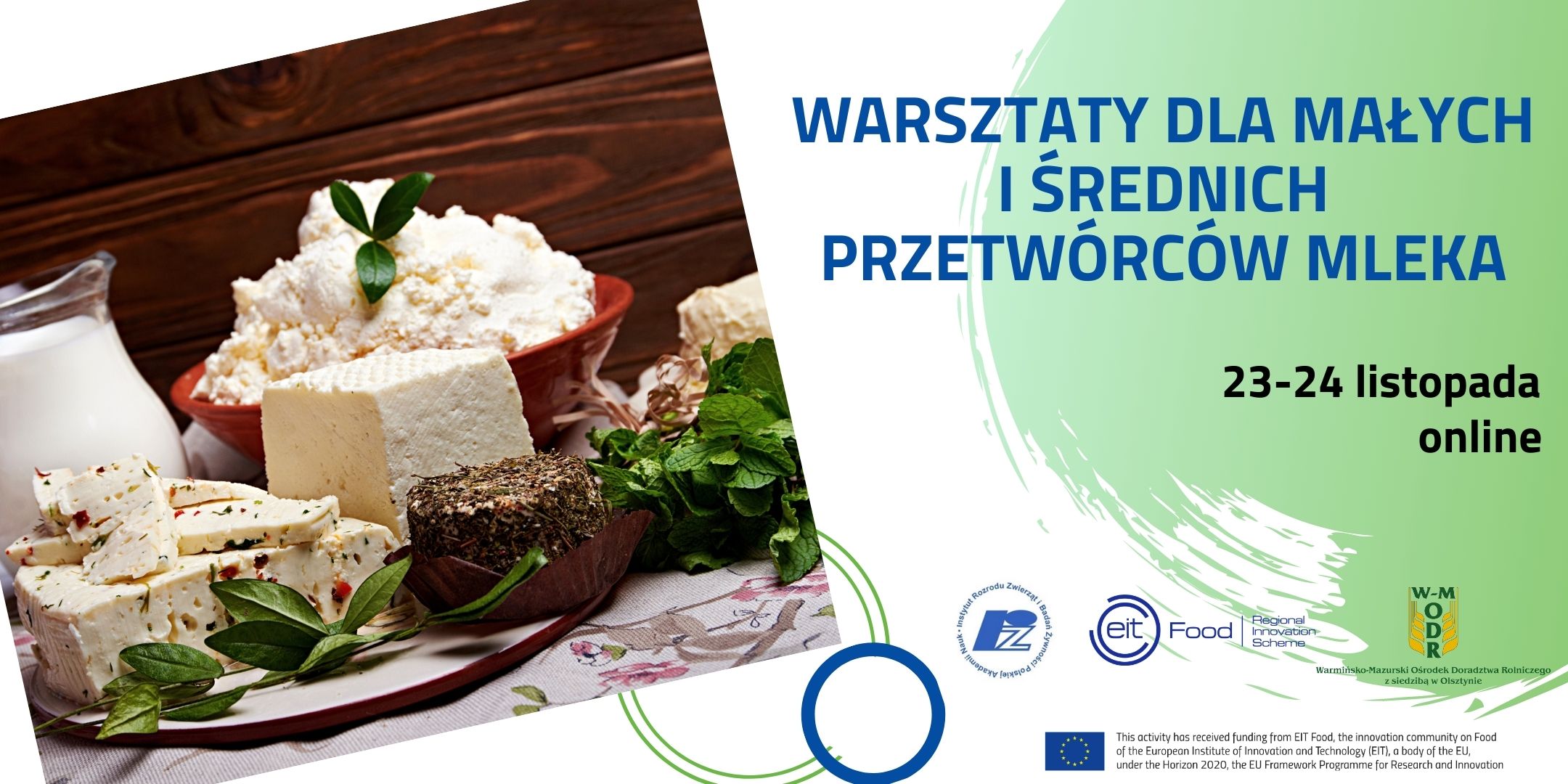
- Uwarunkowania prawne, sanitarne i techniczne przy rozpoczynaniu małego przetwórstwa mleka [Principles of small dairy industry and set of regulations for starting the dairy processing];
- Produkcja serów – od czego zacząć? [Cheese production – how to start?];
- Problemy i sposoby rozwiązań w pracy małej mleczarni rzemieślniczej [Problems and solutions at work of a small manufacture dairy];
- Skład dawki pokarmowej a jakość surowca (mleka) w produkcji przetworów mleczarskich [The food ratio composition and the quality of the raw milk in the production of dairy products];
- Produkty z mleka surowego – wymagania higieniczne [Raw milk products – hygienic requirements];
- Fermentowane napoje mleczne (jogurt, kefir, maślanka, zsiadłe mleko) – właściwości produktów, kultury, proces [Fermented products (yoghurt, kefir, buttermilk, soured milk) – product properties, culture, process];
WIDEO
- Dobre praktyki – farmerska produkcja sera na przykładzie gospodarstwa Państwa Palińskich w Komorowie Żuławskim [Farm report – Good practice of farm cheese production on the Paliński Farm in Komorowo Zulawskie];
- Jak zrobić w warunkach domowych: masło, sery, twarogi – pokaz interaktywny – [How to make homemade: butter, cheese, cottage cheese – interactive demonstration];
Warsztaty dla hodowców bydła i producentów mleka [Workshop for dairy cattle breeders and milk producers in Poland]
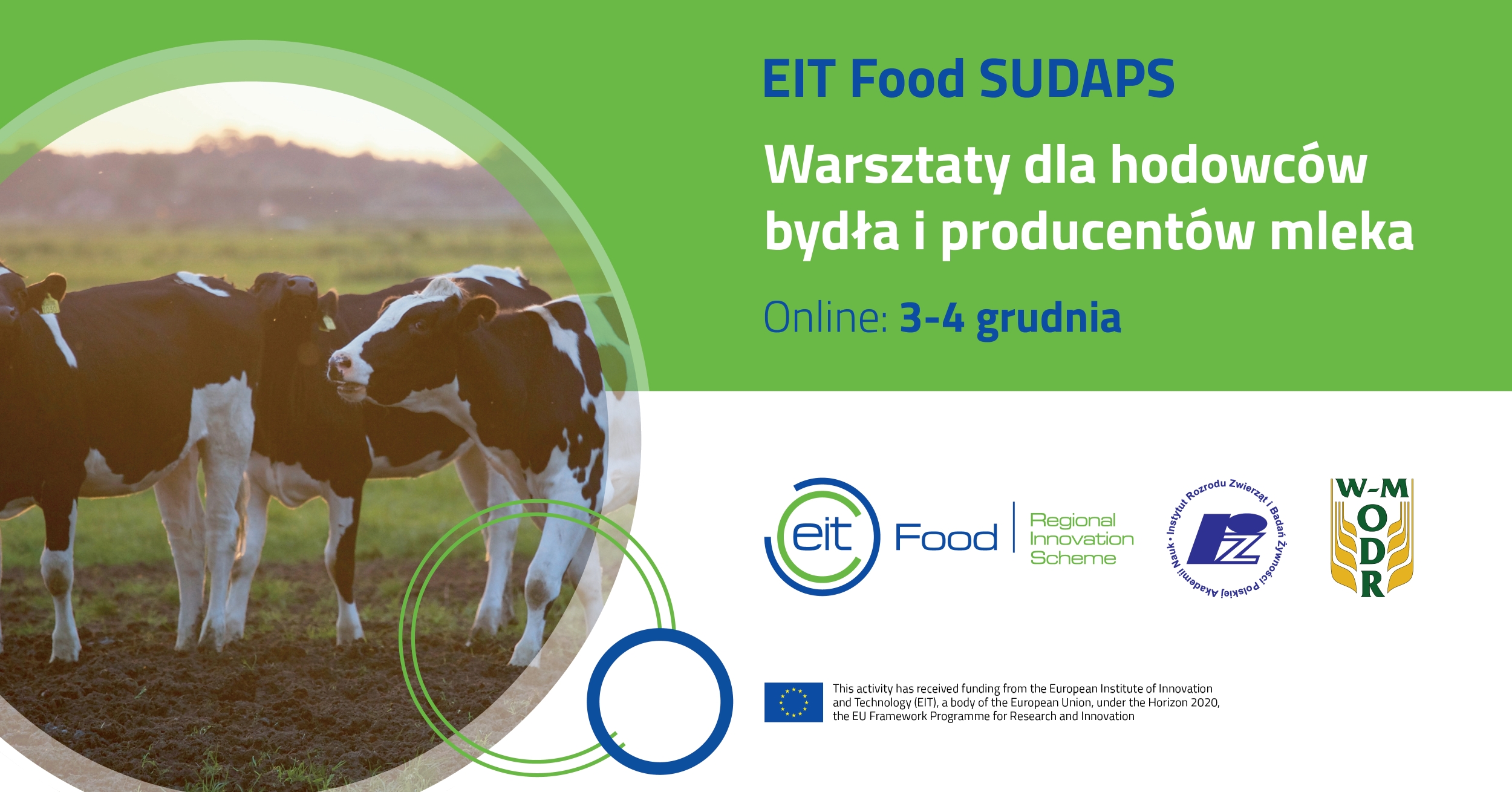
-
-
- Narzędzie EkonMOD. Interaktywny model gospodarstwa mleczarskiego. Nowoczesny transfer wiedzy i współtworzenie rozwiązań. Studium przypadku – Słowacja [EkonMOD milk tool – Interactive model of a dairy farminnovative knowledge transfer and co-creation of solutions – case study];
- Fizjologia rozrodu bydła mlecznego i nowoczesne metody sterowania rozrodem w stadzie [Dairy cattle reproductive physiology and modern methods of reproduction control in the herd];
- Od cielęcia po długowieczną krowę – doświadczenia hodowcy w zarządzaniu na przykładzie hodowli w rodzinnym Gospodarstwie Rolnym Ewy i Wojciecha Jończyk [From calf to longevity cow – breeder’s experience in management on an example of breeding in a family farm Ewa and Wojciech Jonczyk];
- Dodatki do zakiszania – jako sposób sterowania fermentacją [Silage additives as a method of quality control of silages];
- Zapalenie gruczołu mlekowego (mastitis) u krów mlecznych – wyzwanie dla hodowcy bydła [Mastitis in dairy cows – a challenge for cattle breeder];
- Zrozumieć krowę, gdy nie mówi ludzkim głosem – o behawioryzmie zwierząt i sposobie jego wykorzystania [To understand a cow, when it doesn’t speak with a human voice – how to use animal behavior and welfare];
- Efektywność ekonomiczna i ekologiczna hodowli bydła mlecznego w kontekście pozostałych gałęzi produkcji zwierzęcej [Economic and ecological efficiency of dairy cattle production in the context of other branches of livestock production];
-
WIDEO
-
-
- Dobre praktyki – Farmerska produkcja mleka na przykładzie Gospodarstwa Pana Marcina Strumiłowskiego z Łupek [Farm report-Good practice in breeding of dairy cattle-modern technology on Strumilowski Farm in Lupki];
-
EIT Food „SUDAPS – Support for Dairy Production Sector in RIS Region”
—
Formazione in Italia – Workshops in Italy
- Nuove prospettive per una filiera latte più sostenibile. Sessione Allevatori [New perspectives for a more sustainable milk supply chain. Breeders session];
- Nuove prospettive per una filiera latte più sostenibile. Sessione produttori [New perspectives for a more sustainable milk supply chain. Producers session];
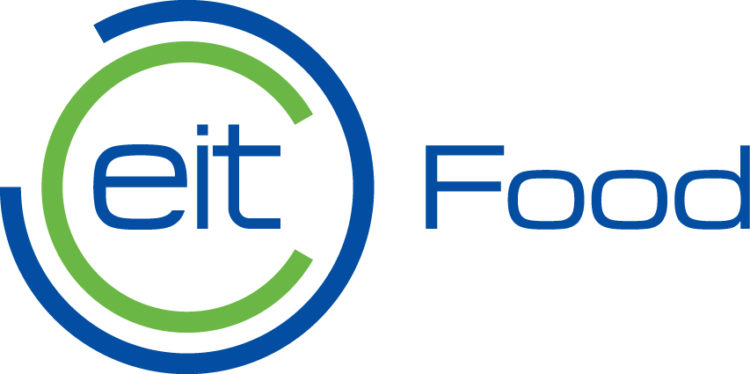
![]()
Szkolenie internetowe 18 grudnia 2020

Szkolenie internetowe w ramach w ramach umowy o nr rej. OR14-6521.2-OR1400004/18 – Program Doradztwa Rybackiego „Pozyskiwanie, przechowywanie i zapładnianie gamet ryb” – akronim FishRePro.
Szkolenie odbędzie się 18 grudnia od godziny 12:00 do godziny 14:00. Szkolenie prowadzone będzie na platformie internetowej ZOOM z możliwością zabrania głosu i prowadzenia dyskusji przez słuchaczy. Skierowane jest do osób pracujących zawodowo w rybactwie, osób zainteresowanych hodowlą ryb, a także studentów wydziałów i kierunków związanych z rybactwem.
Program szkolenia
12:00
Przywitanie – dr hab. inż. Radosław Kowalski
12:10
Tarło pneumatyczne siei – opis optymalizacji procesu dla ryb głąbielowatych.
Prowadzący – dr Beata Sarosiek.
12:30
Przechowywanie nasienia ryb – podstawy teoretyczne dla efektywnego przechowywania nasienia w warunkach chłodniczych bez konieczności zamrażania.
Prowadzący – dr hab. inż. Radosław Kowalski.
13:10
Biotechnika rozrodu ryb karpiowatych – aktualny stan wiedzy oraz innowacje w rozrodzie.
Prowadzący – dr inż. Beata Cejko.
13:45 – 14:00
Dyskusja.


